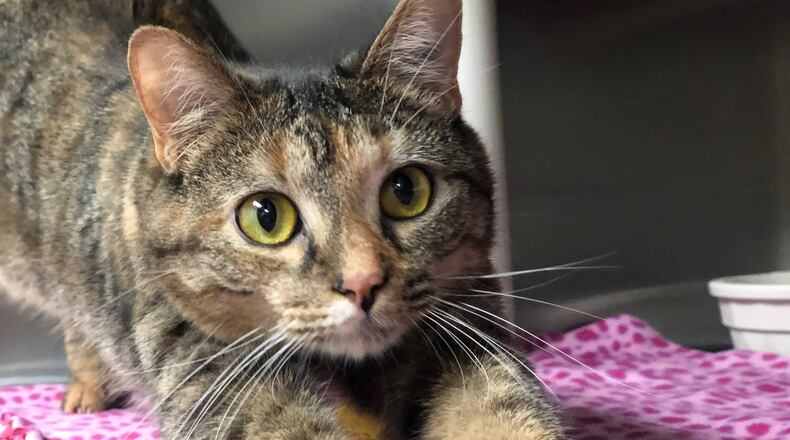The humane society plans to reinstate its adoption program on May 12, but some interactions will take place virtually and in-person visits will be by appointment only to protect staff and the public.
“We are going to handle the adoption process differently, and it will be scheduled and managed so we don’t have an open door, come-on-in type of policy we had before,” said Brian Weltge, president and CEO of the Humane Society of Greater Dayton.
Coronavirus: Complete Coverage by the Dayton Daily News
In mid-March, the humane society closed its main shelter at 1611 Nicholas Road in Dayton and the MeowZa Cat Boutique at the Dayton Mall in Miami Twp. because of the coronavirus outbreak.
After closing, most animals were sent to foster homes, except for those with medical and other special needs. Many fosters wound up adopting the animals in their care.
The shelter underwent a deep cleaning and only emergency surgeries and intake continued.
On Tuesday, the humane society again started spaying and neutering free-roaming cats that are trapped by residents to help reduce feline overpopulation.
Cats are seasonal breeders, and kitten season has arrived.
In past years, the humane society typically performed a significant number of surgeries in March and April, and right now it needs to catch up, Weltge said.
Coronavirus: Nearly all humane society pets in temporary foster homes
Surgeries will be by appointment only on Tuesdays, Thursdays and Fridays.
Trappers have been instructed to remain in their vehicles and call the humane society so staff can come outside and pick up felines.
Cats can be dropped off in the morning and picked up in the evening. Volunteers and community members are not allowed inside the shelter at this time.
In the last six weeks, spay and neutering and animal intake only occurred on an emergency basis, Weltge said.
Animal intake will resume in a controlled manner with appointments beginning next week, Weltge said. The humane society accepts animals that people can no longer care for, but does not take in stray dogs.
The humane society has accepted some applications for pet adoptions and fosters, with interactions taking place virtually online, Weltge said.
In-person visits will be scheduled to limit the flow of people into the shelter, Weltge said.
Until there is little to no infection risk, this will be the new normal for the humane society, he said.
Due to COVID-19, the humane society canceled events such as its annual meeting and celebration and estimated it would lose about $285,000.
MORE: E-bikes are coming soon to Dayton. Here’s when they hit the streets.
Community members have stepped up and donated money, but there is still considerable need since animals require food, medical care and other help, Weltge said.
“There is a backlog of lots of things,” Weltge said. “We are excited to get back to full swing helping as many animals in the community as we can.”
Each year, the humane society places more than 2,000 animals and performs more than 4,000 surgeries.
The main kennel has space for about 20 dogs and houses about 60 to 80 cats. The humane society also has off-site locations to shelter cats.
About the Author


